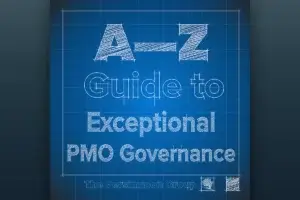There is a common misconception that leaders merely manage creative efforts; rather than become active participants in the process. Recent research indicates quite the opposite (Friedrich, Mumford, Vessey, Beeler, & Eubanks, 2010). Leaders, it seems, play a crucial role in the creative problem-solving process. The leadership skills they possess can significantly affect the quality of the innovative outcome. Consequently, as organizations increasingly depend on new products and processes to fuel their future, creative problem-solving stands as a critical leadership skill.
For leaders, the creative thought process is sequentially different than for individual contributors. Specifically, successful leaders initiate the process by soliciting and evaluating others’ ideas for solving a particular problem. The clearer the problem to be solved, the easier for team members to produce potential solutions and a leader to evaluate the quality of those solutions. Seeing and clarifying problems, either solo or in collaboration thus becomes the first challenge to a leader’s creative skillset.

The second progressive task is identifying potential solutions to be analyzed and evaluated. Evaluating proposed solutions normally ignites the leader’s creative thinking and they begin to generate additional ideas, discover alternative perspectives, and redefine the original problem. Sharing their alternatives, insights, and additions stimulates team members to continue solution generation and development. At this phase, solution standards are appraised, potential solution outcomes predicted, old ideas revised and new ideas put forth by leaders and contributors collectively.
As potential and probable solutions surface, the third challenge for the leader becomes identifying and encouraging buy-in by the multiple stakeholders within the organization. As a result, the leader not only evaluates the potential logistical implications of solution implementation but also the social and political implications as well. Consequently, a leader needs to be skilled in evaluating creative ideas, as well as forecasting the varied outcomes associated with the different areas of the organization involved in the innovation.
A leader’s creative problem-solving skills vary, however, depending on the type of problem being solved. Evaluative and judgment skills are in high demand if the problem requires a process innovation. When the solution is intended to result in a product innovation, a leader’s skill in generating clear problem definitions and workable solutions will influence the ultimate success of the innovative outcome.
For an organization to grow and prosper, fresh products and efficient processes are constantly needed. What worked yesterday is not guaranteed to work tomorrow. Leaders with creative problem-solving skills have the ability to stimulate, challenge and inspire others to continually pursue prominent problems and devise creative solutions to feed future organizational growth and success.
Our guest blogger is Professor Dr. Paul Schempp, a professional speaker managed by The Persimmon Group Speakers Agency. Dr. Schempp directs a research laboratory at the University of Georgia where he has spent more than two decades studying the characteristics and development of expertise and human performance. Paul has dedicated his professional life to helping people reach their full potential through award-winning research, testing what it takes to achieve greatness.
He is the author of six books including the award-winning, 5 Steps to Expert: How to Go from Business Novice to Elite Performer.









